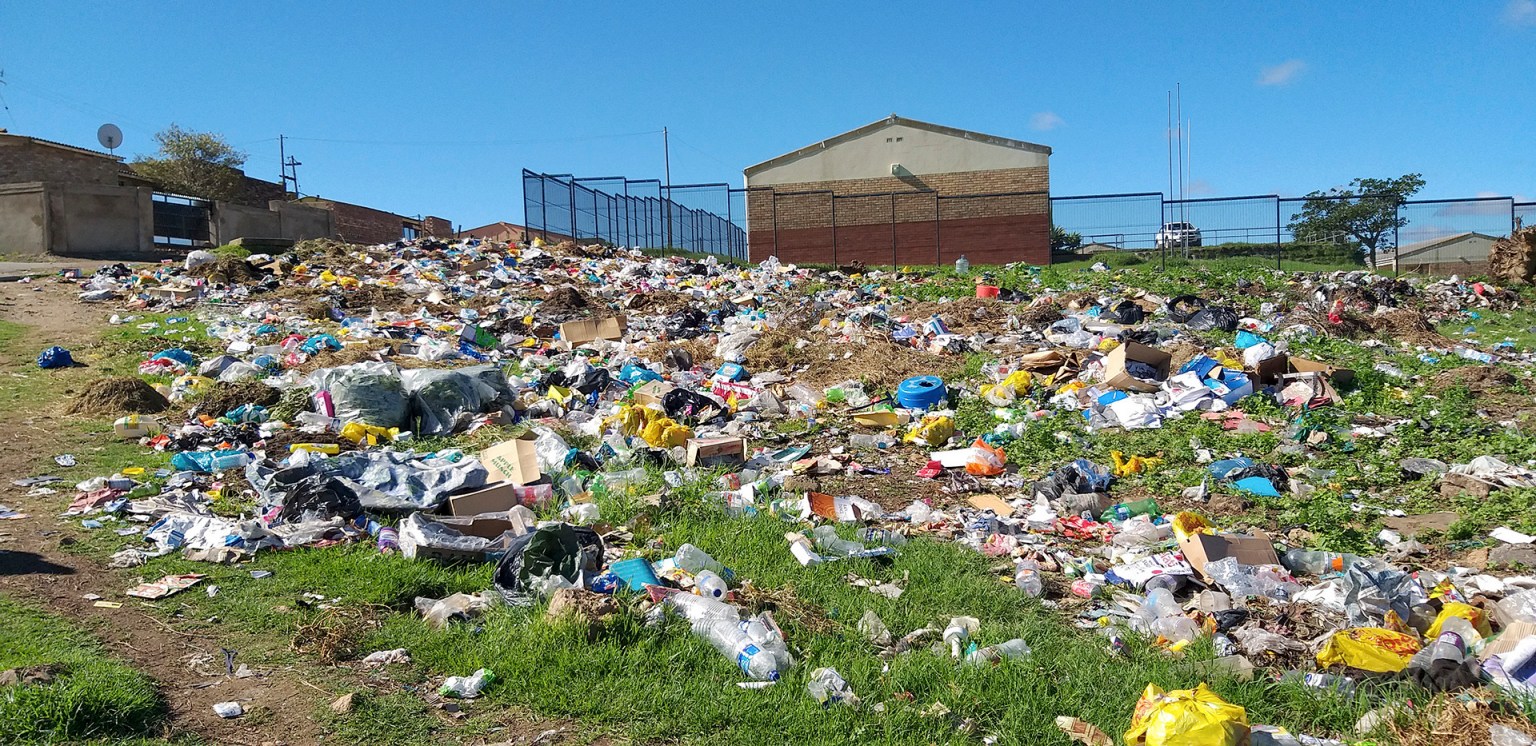News
Dysfunctional South African Municipalities Are Killing Small Businesses
Many of South Africa’s local municipalities grossly underperform in terms of governance, financial management and service delivery.

Many of South Africa’s local municipalities grossly underperform in terms of governance, financial management and service delivery. Anecdotes surrounding the dereliction of duty across these key pillars are manifold; from tales of ratepayers’ money being splurged on new high-end cars for municipal staff, to scenes of sewage gushing down suburban streets owing to decrepit wastewater infrastructure.
Every financial year the Auditor-General releases a Municipal Finance Management Act (MFMA) report which provides a national audit of municipal performance. And every year the narrative remains largely unchanged as large numbers of local municipalities are given less-than-desirable audit outcomes while only a handful are deemed to be “clean”.
Municipalities with clean audits are characterised by sound financial and performance management disciplines and perform their functions in accordance with applicable legislation. Conversely, municipalities with disclaimed audits do not have accounting records to support their financial statements, and typically reflect a culture of little accountability, transparency, performance or integrity. There are four additional categories which indicate varying degrees of oversight and failure.
In her 2021-22 MFMA report which assessed the performance of 166 local municipalities, the Auditor-General found only 18 were worthy of a clean audit. Twelve were given disclaimed audits and 136 demonstrated some form of irregularity or failure, including 13 which submitted their financial statements late or failed to submit them altogether.
In simple terms: Clean municipalities are largely functional, prudent and responsible. All others demonstrate a varying degree of failure across the areas of governance, financial management and service delivery, with the most extreme seen in those municipalities with disclaimed audits.
An overlooked yet significant obstacle
How does the performance of a local municipality – as illustrated by its audit outcome – affect the performance of a small business?
South Africa is home to an estimated 5.75 million small, micro and medium enterprises (SMMEs), according to the IFC, each of which differs in size, sector and formality. The national government has placed a strong emphasis on the country’s SMME community, identifying them as key drivers of economic growth.
Indeed, there exists an entire government entity in the form of the Department of Small Business Development, which is tasked with supporting South Africa’s SMMEs, armed with an annual budget of R2.6-billion.
It is no secret that SMMEs across the world face an uphill struggle. And while many of the challenges affecting SMME development in South Africa have been documented, ranging from unpredictable cash flow to limited business support and training, a major yet overlooked obstacle lies in the performance of local municipalities.
A recent study by the Brenthurst Foundation, which included a survey and extensive on-the-ground interviews around the country, sought to explore the impact municipal performance has on SMME growth in South Africa.
Survey data illustrates a clear divide in how SMMEs view municipal performance based on the latter’s audit outcome. In municipalities with disclaimed audits, roughly half of all SMMEs view governance and financial management to be abysmal, whereas 41% consider service delivery to be very poor. Only 3% perceive governance to be very good. This is in stark contrast with those SMMEs located in municipalities with clean audits, where the majority perceive governance, financial management and service delivery to be good. Only 6% view service delivery to be very poor.
Most SMMEs feel the performance of their local municipality has a direct impact on their business, irrespective of audit outcome. An interesting observation here is that the majority of SMMEs identify this impact to be negative: 50% of those operating within municipalities with disclaimed audits and 36% of those in municipalities with clean audits. An important caveat here is that 32% of SMMEs in municipalities with clean audits described the impact as positive, while 15% felt it to be very positive, and 3% saw it as extremely positive.
The survey found that this impact ultimately bears a financial burden, with SMMEs in municipalities with disclaimed audits more likely to suffer compared with those in municipalities with clean audits. Of the SMMEs surveyed, 60% reported losing revenue due to the performance of their local municipality, with 77% being in municipalities with disclaimed audits and 33% located in municipalities with clean audits. Most of those SMMEs which reported losing revenue – irrespective of their municipality’s audit outcome – stipulated this to be 13% and above of their gross annual revenue.
Additionally, SMMEs in the worst-performing municipalities are more likely to invest in systems and measures to support their business’s operations, ranging from boreholes to solar installations. This comes as 93% of those SMMEs in municipalities with disclaimed audits reported having to invest in systems to offset municipal shortcomings, compared with 45% of those operating in municipalities with clean audits. When assessing the cost of these measures, one can observe that an SMME operating in a municipality with a disclaimed audit will spend up to double what their counterpart will in a top-performing municipality.
‘We’ve gone back to being a frontier town’
The Makana Local Municipality – home of Makhanda, formerly Grahamstown – has become the poster child for what a dysfunctional municipality looks like and the impact it has on a business community. In 2019, the town’s deterioration caught the eye of Sky News which produced a report on how the former British military outpost, established in 1812, now found itself in the “dumps” owing to corruption.
A visit to Makhanda in January 2024 by the Brenthurst Foundation illustrated how poor governance and financial management have ultimately translated into deteriorating levels of service delivery. This includes the provision of potable water and sanitation, refuse removal and road maintenance. “Our infrastructure is in a perilous state… we’ve gone back to being a frontier town,” says Richard Gaybba, director of the Makana Business and Residents’ Association (MB&RA).
The responsibility to provide basic service delivery therefore falls to local business and residents’ associations, including the MB&RA and Makana Revive! The latter is a Section 18A organisation aimed at raising and disbursing funds to improve the safety, health, security, sustainability and cleanliness of Makhanda.

Needless to say, this is not a cheap endeavour. “We’ve now had to build our own roads,” Gaybba says, adding that it costs the MB&RA between R350 and R450 per square metre for road repairs. Another business owner who operates two hotels in the town recently invested R300,000 for a complete borehole system and spends an additional R35,000 each month as part of a payment plan for a solar system he installed.
The majority of SMMEs surveyed in the Makana Local Municipality viewed the municipality’s performance across key domains (governance, financial management and service delivery) as abysmal. Additionally, 65% described its impact on business performance as extremely negative, with 82% reporting lost revenue as a result and 100% having to invest in systems to support their performance.
Contrast this with the Swellendam Local Municipality, whose most recent audit outcome was deemed to be clean and where most businesses viewed governance and service delivery as good (most were unsure about financial management). Most businesses described the municipality’s impact on their business as positive. Only 16% said they had lost revenue due to their municipality’s performance, while 27% had invested in systems to support their performance.
Or the Midvaal Local Municipality, which was awarded a clean audit outcome in the 2021-22 MFMA report. Here the results were even more optimistic as most businesses viewed governance as very good; financial management was equally viewed as good, very good and excellent; and service delivery was viewed as excellent. Most businesses described the municipality’s impact on their business as positive. Only 11% said they had lost revenue due to their municipality’s performance, while 28% had invested in systems to support their performance.
Of course, no municipality is perfect. The Mnquma Local Municipality’s most recent audit outcome was deemed clean, yet 83% of SMMEs surveyed perceived municipal performance as having a negative effect on their respective businesses. The closure of the Mazeppa Beach Hotel, as reported by Daily Maverick, qualifies this negative sentiment.
Mnquma is a newcomer to the small club of clean municipalities, having previously been described as a “basket case”. While the issues surrounding service delivery cannot be dismissed, one must be realistic about the ability of municipalities to turn themselves around. To this end, local municipal performance is in many ways a continuous exercise of improvement and not necessarily an end goal. Should Mnquma maintain its clean audit outcome then improved service delivery is likely to follow.
What is clear is that local municipal performance has an impact on SMMEs. Businesses cannot hope to sustain themselves – let alone expand – if they have to do so with one arm tied behind their backs as they combat a deteriorating physical environment where service delivery is becoming increasingly unreliable. While some can weather these challenges, albeit begrudgingly and at great cost, this is a luxury many other SMMEs cannot afford.
If small and medium-sized businesses are to achieve their desired status as engines of growth in South Africa, then strong-performing local municipalities are without question the foundation upon which this success is built. DM
Richard Morrow and Rutendo Nyaku are with the Brenthurst Foundation. Their discussion paper can be accessed here.
This article originally appeared on the Daily Maverick



